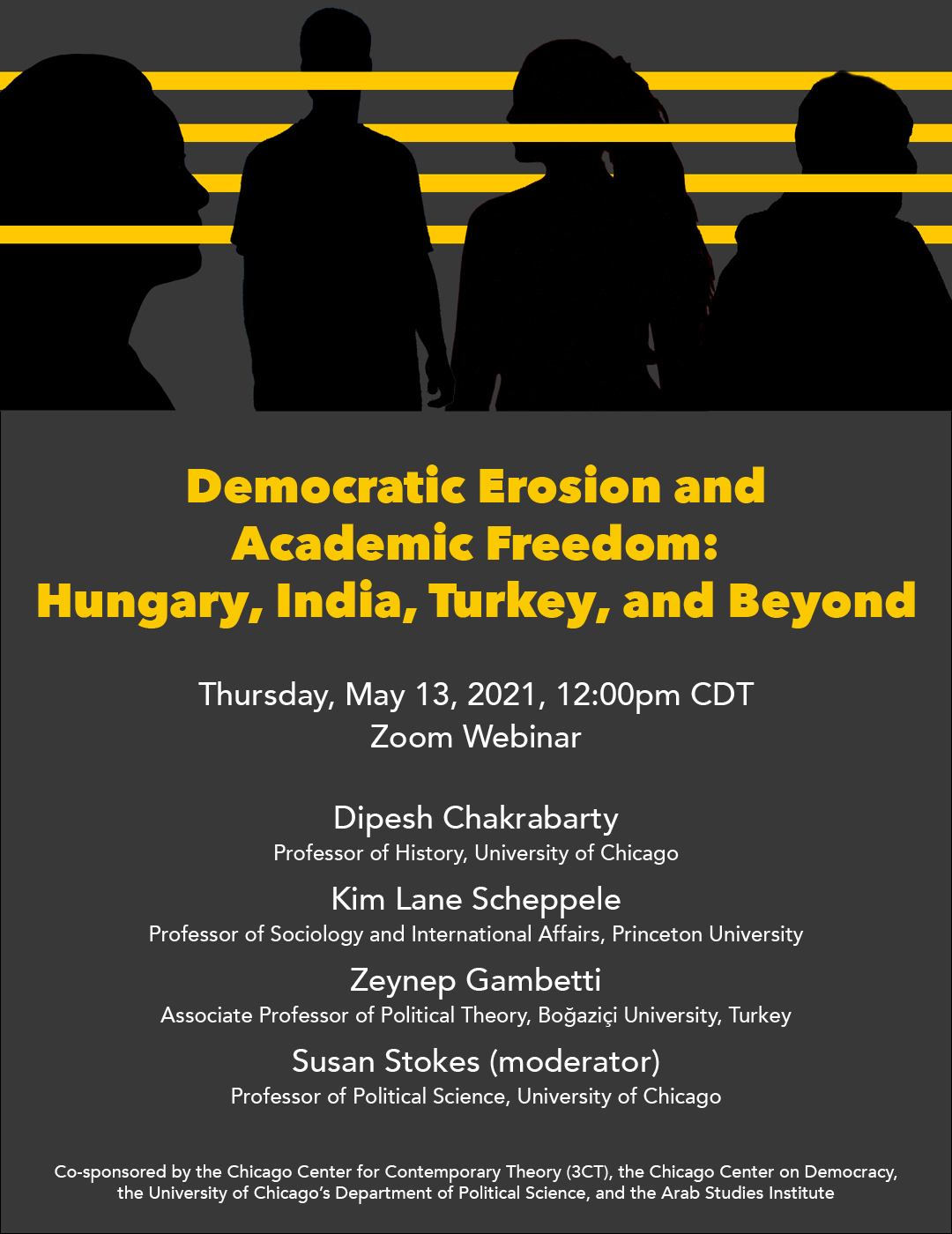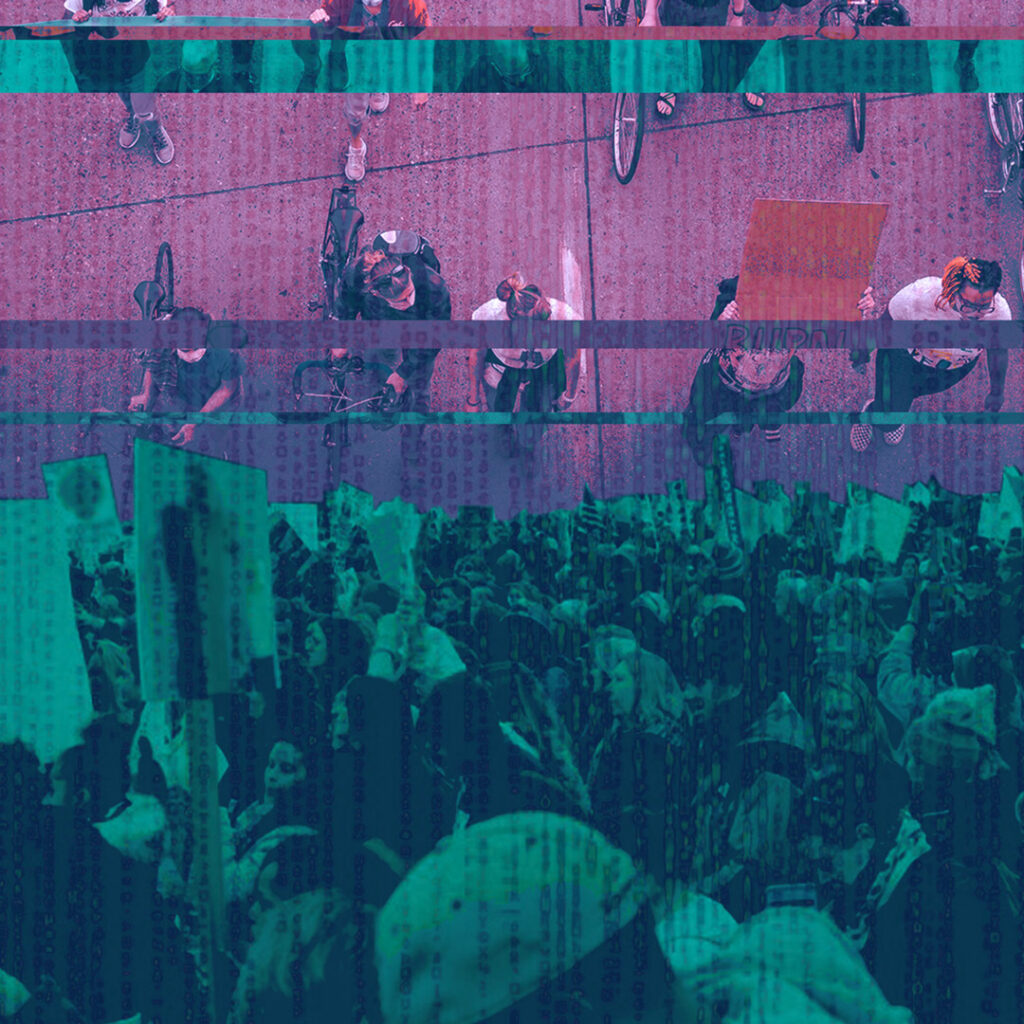Categories
Dipesh Chakrabarty, Kim Lane Scheppele, and Zeynep GambettiDemocratic Erosion and Academic Freedom: Hungary, India, Turkey, and Beyond
Thursday, May 13, 2021, 12:00pmWidespread democratic backsliding is raising alarm bells about the future of academic freedom in democratic and autocratic regimes. Such fears are not unwarranted. Institutions of higher education suffer from systemic and multi-faceted attacks across the globe. Transgressions on university autonomy, restrictions on research and curriculum, widespread neoliberal transformation of funding structures, and attacks on the life and liberty of academics themselves demonstrate the extensiveness of the arsenal employed by a multitude of governments. Are the recent attacks on academic freedom spillover effects of democratic erosion? What pressures do academics face, and what awaits university campuses?
Drawing from the comparative threads of authoritarian strategy seen across the cases of Turkey, Hungary, and India, this panel brings together scholars to discuss the state of academic freedom and democratic erosion followed by an open discussion with the panelists.
Speakers include Dipesh Chakrabarty (Professor of History and 3CT fellow, University of Chicago), Kim Lane Scheppele (Professor of Sociology and International Affairs, Princeton University), and Zeynep Gambetti (Associate Professor of Political Theory, Boğaziçi University, Turkey). Susan Stokes (Professor of Political Science, University of Chicago) will moderate their conversation.
This event is organized by Ipek Cinar and Burak Tan, doctoral students in the University of Chicago’s Department of Political Science.
This event is free and open to the public: register here to join the Zoom webinar, or visit Jadaliyya’s Facebook page for the livestream. Live captioning will be provided. Please email us at ccct@uchicago.edu if you require any accommodations to enable your full participation.
Co-sponsored by 3CT, the Chicago Center on Democracy, the University of Chicago’s Department of Political Science, and the Arab Studies Institute.

